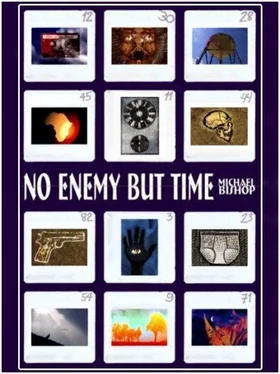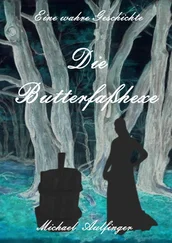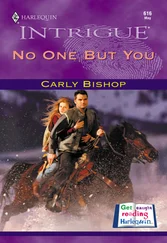Joshua winked a conspiratorial goodbye and left.
On the shuttle bus back to Eglin—he had sold his Kawasaki to an airman in recreational services—he took the novel out of its grainy, biodegradable sack and opened it on his knees like a dictionary or a Bible. Then he thumbed forward from the end papers to the table of contents. While he was riffling these leaves, an inscription at the top of an otherwise virgin page caught his eye, and he turned back to see what he had missed.
It was the dedication:
In memory of
Encarnación Consuela Ocampo
and
Lucky James Bledsoe
——
for all that they gave me
That evening Joshua telephoned his mother’s Riverdale apartment from the day room in his barracks. No one answered. He dialed the number every half-hour. Shortly after eleven he reached a thin masculine voice that told him, peevishly, Jeannette Monegal had not had this particular telephone number for at least five years. Joshua called information and learned that although his mother no longer had a listing for Riverdale, the directory did show a few other Monegals whose first initials corresponded to his mother’s.
He tried three such numbers with no success and a sense of mounting frustration. At midnight he hauled himself upstairs and fell into bed.
In the morning his first thought was Ah ha, I’ll call Anna .
But Anna had left Agnes Scott in Atlanta at least five years ago, and when he finally reached a hired official in the school’s alumnae society and tried to talk her into divulging the present whereabouts of Miss Anna Rivenbark Monegal, class of 1980, he was met with a distant, scrupulously polite, “Sorry—not a chance,” the implication being that he sounded like a rapist, a salesman, or some other unsavory blight on the stately live oak of civilization.
Then, like being sideswiped by a Greyhound bus, it hit him: Van Luna, Kansas! Where but Van Luna, Kansas, would his mother and his sister retreat for the Christmas holidays? Nowhere else but!
Excitedly Joshua put through a long-distance call to the residence of Mrs. William C. Rivenbark of Van Luna, Kansas. In 1972, at precisely this time of year, Old Bill had died of a heart attack in Cheyenne. He and Peggy had come to Wyoming—their second such trip—to visit their daughter and grandchildren for Christmas while Hugo was supervising the loading of B-52 bomb bays at Anderson Air Force Base on Guam. Under decidedly peculiar circumstances, in the bedroom of Pete and Lily Grier, the Monegals’ former landlords, Bill Rivenbark had collapsed and nearly lost consciousness. Pete Grier had been out of state at the time, attending a bowl game in New Orleans with a cousin from Texas, and Lily, in an exemplary dither, had telephoned Jeannette to come and rescue her father before Peggy, asleep in the Monegals’ old apartment downstairs, discovered that her husband was upstairs with Lily rather than stretched out beside her in connubial repose.
Angry and distraught, Jeannette had answered Lily’s plea, taking ten-year-old John-John with her to the Griers’ house since Anna was spending the night at a friend’s. Upstairs his grandfather had lain supine on another man’s bed, his dentures clamped together like a strip of yellow whalebone. The old man’s eyes had been as elusive as welding sparks, seeming to go everywhere without settling on anything. Bill had suffered a second heart attack in the hospital’s emergency room, and that one had finished him off….
Joshua’s recollection of this incident took on embarrassing vividness as the widow’s telephone rang.
Maybe this was a mistake. He held the receiver away from his head and considered hanging up.
“Hello?” A cautious female voice, girlish rather than elderly.
“Anna?”
“Who is this, anyway?”
Joshua told her. There intervened a silence like the silence a bowler experiences after lofting a gutter ball.
You couldn’t hear a pin drop.
“Come on, Anna, talk to me.”
“What do you want?”
“Is Mom there? I saw Mom’s book, the novel.”
“She’s not here, Johnny. She may get here for Christmas, she may not. Everything’s up in the air. Where are you?”
He wanted to tell her about meeting Alistair Patrick Blair a year and a half ago, but realized that every aspect of the White Sphinx Project, especially the involvement of the Zarakali paleontologist, was classified. Besides, Anna and he were using an unprotected public line. Besides, she probably didn’t give a damn.
“Can’t talk long. I’ve been finger-feeding this squawk-box quarters for hours, just trying to run you folks down. ‘Bout out o’ change. Anna, I’ve got to know if Mom—”
“Are you coming?”
Joshua Kampa, alias John-John (Johnny) Monegal, studied the receiver as if it were the single bone of contention separating him from his family. Deliberately he asked, “You inviting me?”
“Get out here, you goddamn little defector. Of course I’m inviting you. Of course I’m—” Anna stuck, exasperated or overcome. “Just get on out here, all right?”
* * *
It took two days to catch a MAC transport aircraft from Eglin to Lackland Air Force Base in Texas, but only six hours to claim a seat on a giant, pelicanesque C-141 departing Lackland for McConnell. He rode in the belly of this prodigious bird with twenty other space-available bindlestiffs, a convoy of six haunted-looking blue buses, and several canvas-draped cylinders.
One young airman claimed that the cylinders were unarmed nuclear warheads, while a paunchy officer in wire-rim glasses pooh-poohed this notion, declaring them experimental plastic cisterns for catching and storing water in certain hypothetical combat situations. Their ultimate destination was Fort Carson in Colorado. Joshua did not wait to see who emerged victorious in the warhead/cistern controversy. He disembarked the C-141 as soon after it had set down as the pilot would permit. It was cold in Wichita, and he pulled his Air Force horse-blanket coat tight about his neck and chest.
Once off base, Joshua walked the right-hand side of the highway to Van Luna waiting for a ride. Finally a captain in a 1956 Nash Metropolitan picked him up and carried him the remainder of the way.
Van Luna, once a farming village as well as a modest bedroom community for people employed in Wichita, had spilled over the countryside like the markers in a vast Monopoly game. Tract houses, convenience stores, and motels were everywhere. The highway between McConnell and Van Luna afforded only an occasional glimpse into the pastureland or the cottonwood copses beyond the roadside clutter; and Joshua, despite a long-term familiarity with the mercantile sprawl of Florida’s Miracle Strip, felt betrayed. Even if he had lived here only five years, Van Luna was the Eden of his dreams of childhood. Its streets and fields had represented, at least in memory, the landscape of his choppy evolution toward self-knowledge, a process he still did not regard as complete. This ongoing complication of the simple geometries—the innocent geometries—of the original town was demoralizing.
“Damn.”
“You’re welcome,” said the captain, letting him out not far from the building that had once housed Rivenbark’s Grocery.
The old business district, the cobblestone heart of Van Luna, did not look greatly different from Joshua’s memory of it. Although under the proprietorship of a stranger, the grocery was still a grocery. Even better, the façade of the old Pix Theatre had been restored. Joshua walked through an older neighborhood to his mother’s mother’s house, aware of the townspeople’s tentative curiosity and the chilly tingle of the December air.
At the front door of an old-fashioned red-brick house with Tudor trim and ranks of gorgeous evergreen shrubs around the porch and walls, Joshua knocked. No one came. He pressed the buzzer and heard a thin, protracted raspberry deep inside the house. Whereupon the door swung open and there stood Anna, simultaneously smiling a welcome and trying to shush him to absolute silence. She was pregnant, quite far along, and their enthusiastic hug had to accommodate itself to the salience of her belly.
Читать дальше



![Ally Carter - [Gallagher Girls 01] I'd Tell You I Love You But Then I'd Have to Kill You](/books/262179/ally-carter-gallagher-girls-01-i-d-tell-you-i-lo-thumb.webp)








